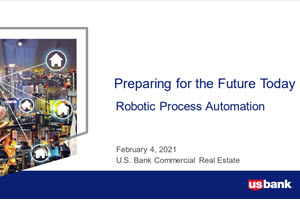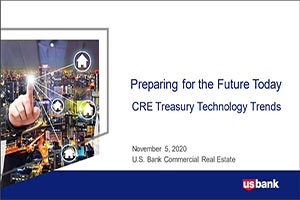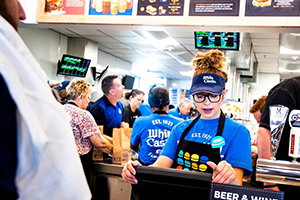
Colleges respond to student needs by offering digital payments

6 timely reasons to integrate your receivables

Benefits of billing foreign customers in their own currency

Improve government payments with electronic billing platforms

Hospitals face cybersecurity risks in surprising new ways

Webinar: Robotic process automation

Webinar: CRE technology trends

5 Ways to protect your government agency from payment fraud

Government agency credit card programs and PCI compliance

Access, flexibility and simplicity: How governments can modernize payments to help their citizens

Modernizing fare payment without leaving any riders behind

Tap-to-pay: Modernizing fare payments pays off for transit agencies and riders

How real-time inventory visibility can boost retail margins

Escheatment resources: Reporting deadlines for all 50 states

Payment industry trends that are the future of POS

White Castle optimizes payment transactions

ABCs of APIs: Drive treasury efficiency with real-time connectivity

Managing the rising costs of payment acceptance with service fees

Three healthcare payment trends that will continue to matter in 2022

Want AP automation to pay both businesses and consumers?

Webinar: CSM corporation re-thinks AP

Increase working capital with Commercial Card Optimization

How to improve digital payments security for your health system

Tech tools to keep your restaurant operations running smoothly

3 benefits of integrated payments in healthcare

Top 3 ways digital payments can transform the patient experience

Automate accounts payable to optimize revenue and payments

Automate escheatment for accounts payable to save time and money

A simple guide to set up your online ordering restaurant

Cashless business pros and cons: Should you make the switch?

ePOS cash register training tips and tricks

Ways prepaid cards disburse government funds to the unbanked

Webinar: AP automation for commercial real estate

Understanding and preparing for the new payment experience

Safeguarding the payment experience through contactless

COVID-19 safety recommendations: Are you ready to reopen?

Higher education and the cashless society: Latest trends

3 ways to make practical use of real-time payments

4 benefits to paying foreign suppliers in their own currency

Digital banking and cloud accounting software: How they work together

Restaurant surveys show changing customer payment preferences

Unexpected cost savings may be hiding in your payment strategy

Digital trends poised to reshape hotel payments

Enhancing the patient experience through people-centered payments

Why retail merchandise returns will be a differentiator in 2022

Overcoming the 3 key challenges of a lump sum relocation program

Streamline operations with all-in-one small business financial support

Checklist: What you’ll need for your first retail pop-up shop

How mobile point of sale (mPOS) can benefit your side gig

Staying organized when taking payments

Key considerations for online ordering systems

How does an electronic point of sale help your business keep track of every dime?

Tools that can streamline staffing and employee management

How to identify what technology is needed for your small business

Planning for restaurant startup costs and when to expect them

Why ecommerce for small business strategy is integral

4 restaurant models that aren’t dine-in

Omnichannel retail: 4 best practices for navigating the new normal

Is your restaurant Google-friendly?

How small businesses are growing sales with online ordering

Rethinking common time management tips

How increased supply chain visibility can combat disruptors

Strengthen your brand with modern POS technology

Technology strategies to complement your business plan

How to apply for a business credit card

How jumbo loans can help home buyers and your builder business

How to accept credit cards online

How Everyday Funding can improve cash flow

3 ways POS data analysis can help define your brand

Improve online presence your business

Honey Luxury Beauté: growing a side project into an eye-catching beauty business

3 ways to gain loyalty with your customers

When your spouse has passed away: A three-month financial checklist

How to save money in college: easy ways to spend less

3 awkward situations Zelle can help avoid

Dear Money Mentor: How do I set and track financial goals?

P2P payments make it easier to split the tab

Dear Money Mentor: How do I begin paying off credit card debt?

